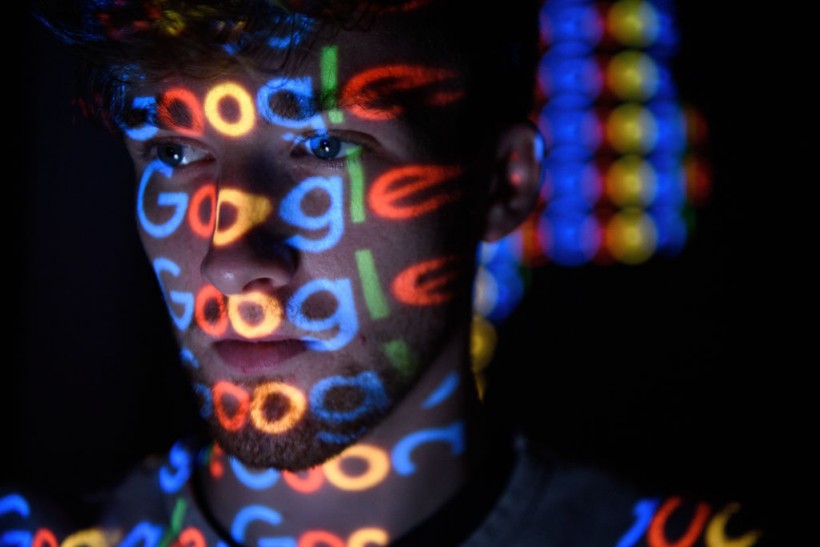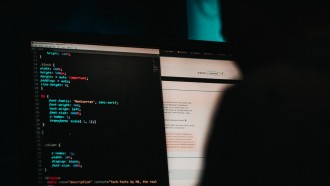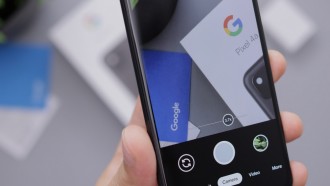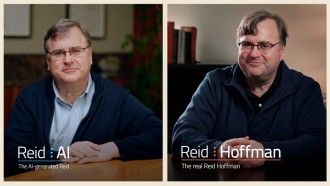Google proves to reportedly be going all in for faster artificial intelligence integration into its features by fusing its Android software divisions into the pixel hardware divisions.
Following the decision, Rick Osterloh, a Google executive who formerly managed the company's hardware business, will oversee both the software division responsible for Android mobile software and the Chrome browser and the hardware division renowned for Pixel smartphones and Fitbit wearables, now reportedly known as the "Platforms and Devices" division.

(Photo: Leon Neal/Getty Images) In this photo illustration, The Google logo is projected onto a man on August 09, 2017, in London, England.
Meanwhile, according to Pichai's letter, Hiroshi Lockheimer, the head of Google's software business, is without a title and will begin some other unspecified tasks.
Google recently separated Android development from hardware, claiming it did so to prevent providing its phone designers an unfair edge over other big smartphone makers using Android, including Samsung and Motorola, and Chinese competitors such as Oppo and Xiaomi.
Read Also: Microsoft to Split Up Teams from Office Worldwide to Dodge EU Antitrust Scrutiny
Google Backtracks
Then, a few years ago, ABC notes Google began positioning the Pixel as a flagship for displaying what AI could do, focusing significantly on building features that would illustrate its promise. This required further AI hardware and software integration to enable such functions on mobile devices.
Osterloh stated that AI is the primary motivation for combining Google's consumer hardware and software developers.
He said that phone technology is already becoming increasingly reliant on AI, noting the Pixel camera, which, among other things, utilizes the technology to improve nighttime photographs or automatically select the best of numerous tightly timed shots.
Osterloh noted that combining the teams will allow Google to move even quicker in incorporating AI into its features. He stated in the interview that designing the Pixel camera some years ago necessitated a thorough understanding of the complicated hardware and software systems involved and the then-new AI models used for image processing.
Google AI Leadership
Google's leadership, on the other hand, has also drawn criticism when, last month, Google paused its Gemini image generator, which was producing historically incorrect images.
The error was so severe that it reportedly caused the company's stock to plummet, prompting Google CEO Sundar Pichai to address the troops, calling the incident "completely unacceptable."
The disaster has fueled the perception that Google is suddenly falling behind in the AI race and a rising chorus of voices clamoring for Pichai to be replaced.
At the time, Ben Thompson, an analyst and author of the "Stratechery" weekly, stated that Google needed to change, including eliminating those who allowed the former to run rampant, including CEO Sundar Pichai. Google employees and others in Silicon Valley extensively read Thompson's newsletters.
In a published research note, Bernstein analyst Mark Shmulik speculated whether it was time for a shakeup at the top of the internet behemoth.
Related Article: Google I/O 2024 is Coming this May 14- What to Expect?

(Photo: Tech Times)





